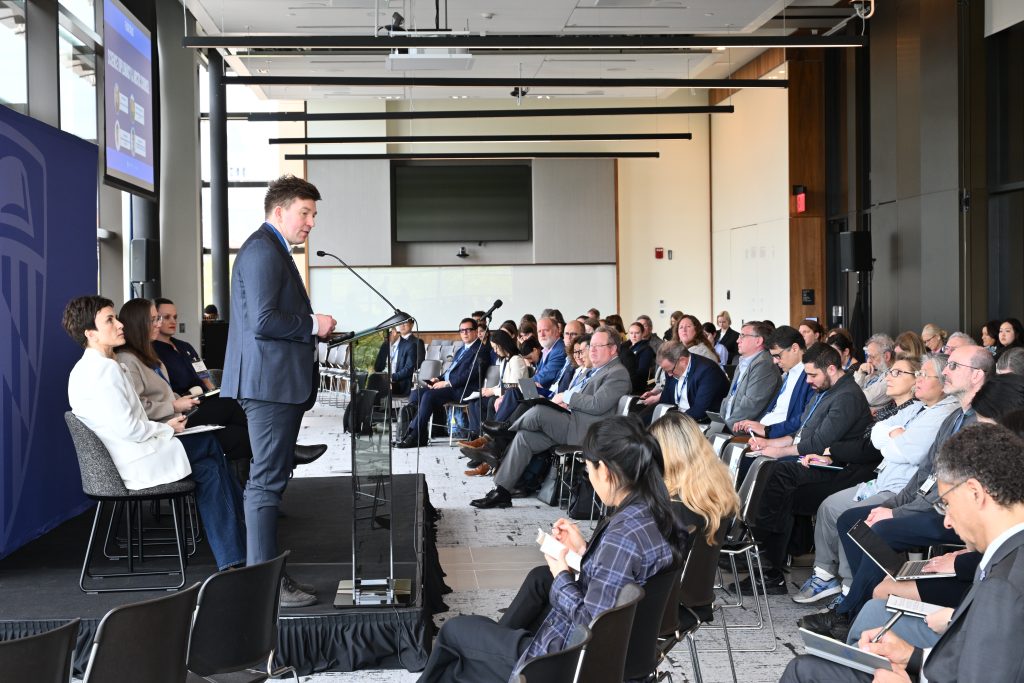
AE Bergen’s Ole Øvretveit speaking at Johns Hopkins University in Washington, DC. Photo credit: SARDARI.COM
AE-Bergen project manager Ole Øvretveit participated in the Science Diplomacy Summit, hosted at Johns Hopkins University in Washington, DC, on April 14–15, 2025. The event brought together approximately 1400 participants from a wide range of countries and sectors, including academia, diplomacy, and Indigenous communities. Several nations, such as France, Poland, and Austria, were represented at a high diplomatic level, highlighting the global relevance of Arctic science and cooperation.
Øvretveit contributed to the session “Polar Diplomacy: Arctic & Antarctic ” with a talk titled “Towards a New Era of Arctic Exceptionalism.” His presentation reflected on the legacy and uncertain future of Arctic cooperation in the face of growing geopolitical tensions and environmental urgency. What has long been referred to as Arctic exceptionalism—the ability to maintain collaboration across political divides—now appears increasingly at risk. The region is becoming polarized between a “Western Arctic” and a “Russian Arctic,” the latter more closely aligned with BRICS and non-Western powers. Meanwhile, China’s rapidly growing research presence and intensified U.S. interest in Greenland are further complicating the geopolitical landscape.
These emerging fractures pose a serious threat to science-informed decision-making and coordinated sustainability efforts in the Arctic. Øvretveit emphasized that while Arctic collaboration has never been perfect, with enduring challenges around cross-border research, Indigenous inclusion, and balancing development with environmental protection, the region has nonetheless stood out globally for its ability to foster consensus among diverse actors. At the core of this cooperation has been the Arctic Council, which remains the most important institutional platform for peaceful and knowledge-based governance in the region.
Looking ahead to the Fifth International Polar Year in 2032–33, Øvretveit called for renewed ambition and long-term investment in inclusive, ethical Arctic research—anchored in Indigenous leadership and societal relevance — to ensure that the next era of Arctic cooperation is more resilient, equitable, and sustainable.
